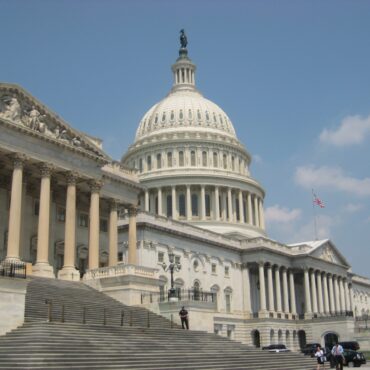
Not Winning Hearts and Minds – Part II
Knowing and Influencing In contrast to President Reagan’s head-nod to Mobutu, or President Arthur’s bet on Leopold, I am certain of Jean-Paul Habimana’s character because I know him. We haven’t […]

A country that demands moral perfection in its foreign policy will achieve neither perfection nor security.
Henry Kissinger
Twenty years ago, Jean-Paul Habimana was an aide to senior government leaders of Rwanda. As a soldier, he risked his life for his brothers-in-arms and for the people of Rwanda. As a government servant, he supported building the infrastructure of a war-torn country. As a business-person, he led with integrity and built the economy, providing opportunity to the economically disadvantaged. As a Pastor of Pastors, he currently endeavors to build unity among Rwandans, create peace, and do justice in a country that only twenty years ago was decimated by war and stood as the least developed country in the world.
Rwanda is a culture in some ways severe. One of the highest compliments a Rwandan will pay is to say someone is “serious,” meaning the person works hard, is competent and delivers on commitments. There is a deep value for positional authority. A sense of order and hierarchy stretches from the poorest farmer to the President. Generals and Ministers are seldom seen “letting their hair down.” A trip to the beach will see families of VIPs playing in the sand next to fathers who are still in suit and tie or uniform. There are various unwritten rules about roles of fathers and mothers in child-rearing, but in general it is looked down on for a father to be seen acting in any way that might be perceived as less than stoic with his children.

Jean-Paul has decided what is best for his family takes precedence over cultural norms. In some ways, this has even been at the expense of his career opportunities. It is not uncommon for Jean-Paul to be seen with his youngest on his shoulders walking in front of the Ministry of Defense waving at the Minister with whom he is on a first name basis. Dinner with Jean-Paul and family will have Jean-Paul down on the floor in his nice clothes playing with the children. Jean-Paul is personally engaged in their education. He chooses to leave work at a reasonable hour to be with his family in a culture where leaders stay at the office till all hours of the night. Jean-Paul is a picture of the kind of leader with whom the United States would be well served to partner.
It is not surprising that with all the commitment of resources to this work, the United States regularly fails miserably at identifying and supporting effective leaders around the world. Nowhere is this failure starker than in the Democratic Republic of Congo. The International Rescue committee estimates 5.4 million people died in Africa’s World War in Congo between 1998 and 2003. Effects of that conflict are seen to this day where Congo holds the title, “Rape Capital of the World.” As early as 1884, the United States Congress, led by an ignorant President Chester A. Arthur, gave explicit approval to creation of the Congo Free State under King Leopold II of Belgium, allowing Leopold to legally appropriate an entire country the size of Western Europe. Treating it as a personal fiefdom from 1885 to 1908 while never actually setting foot in the country, Leopold raped, pillaged and plundered with a death toll estimated at ten million Congolese, many from barbaric mass torture and murder, all for his personal economic gain. He became the wealthiest man in the world by enslaving millions in the labor intensive rubber industry, mutilating men, women and children who didn’t achieve their production quotas. The benefits of this brutality in the form of public buildings and beyond still accrue to the Belgian government today from this worst example of colonialism.
The Belgian government continued to subjugate the Belgian Congo until 1960. The United States inserted itself into the independence movement in the Congo in 1960 to back a junior Congolese Army Officer who would become President. To facilitate this, the United States was at least complicit in killing the popular nationalist leader Patrice Lumumba. President Mobutu Sese Seko would rule in his stead until 1997 while amassing a personal fortune estimated at over five billion dollars. Mobutu was a clown whose distinguishing style was his Leopard-print Fez hat. He and his family and friends all drove expensive new model Mercedes and built multiple Versailles-like residences around Congo while the common people died from starvation, disease and war. President Reagan referred to Mobutu as “a faithful friend to the United States for some 20 years,” describing their relationship as “based on shared interests and perceptions.” All this honor and respect because he was at least publicly anti-communist. As of 2013’s rankings by the United Nations, the Democratic Republic of Congo remains 186 of 187 countries on the Human Development Index. Since the late 1800s, the United States has been actively responsible for promoting leaders who have made the DRC what it is today.

Knowing and Influencing In contrast to President Reagan’s head-nod to Mobutu, or President Arthur’s bet on Leopold, I am certain of Jean-Paul Habimana’s character because I know him. We haven’t […]
Copyright Invoke Media | Copyright 2020
Post comments (0)